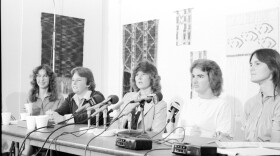A proposed open data policy for the city of San Diego was given a unanimous go-ahead Wednesday by the City Council's Economic Development and Intergovernmental Relations Committee.
The policy is designed to make government information -- such as databases, maps, graphs, lists, charts and tables -- available to residents online. It was developed by the city's Open Data Advisory Group, which is made up of representatives from San Diego's technology community, the city's Independent Budget Analyst and employees with the City Council offices of Mark Kersey and Sherri Lightner, among others.
City #OpenData policy passes committee unanimously. Important step to making government more transparent. Thanks @SherriLightner @markkersey
— Kevin Faulconer (@kevin_faulconer) July 2, 2014"I envision an open data policy as a means of ensuring transparency, enabling participatory governance, and as a means of economic development," Lightner said.
Several members of the technology industry said such information could spark the creation of local start-up companies.
"We've been told that there are all kinds of opportunities for people to not only create businesses, which would be fantastic, but also help the city function better," Kersey said. "Both of those goals are very laudable."
In the budget for the fiscal year that began Tuesday, the city funded a slot for a chief data officer who will complete the plan and present it to the City Council for final approval. But that could take awhile.
Almis Udrys, the director of the city's new Performance and Analytics Department, said the city has hundreds of data sets that will have to be indexed, a process that could take until the end of March. A status report on progress will be issued to the committee around that time, he said.
According to the report, the chief data officer will be required to report within six months to the mayor and City Council the progress that's been made in implementing the policy. The person in the position would also produce a compliance report in 18 months and annually thereafter.
Udrys said implementation of the policy could take five years to complete.
The plan has been endorsed by two nonprofit groups -- Code for America and Open San Diego.






